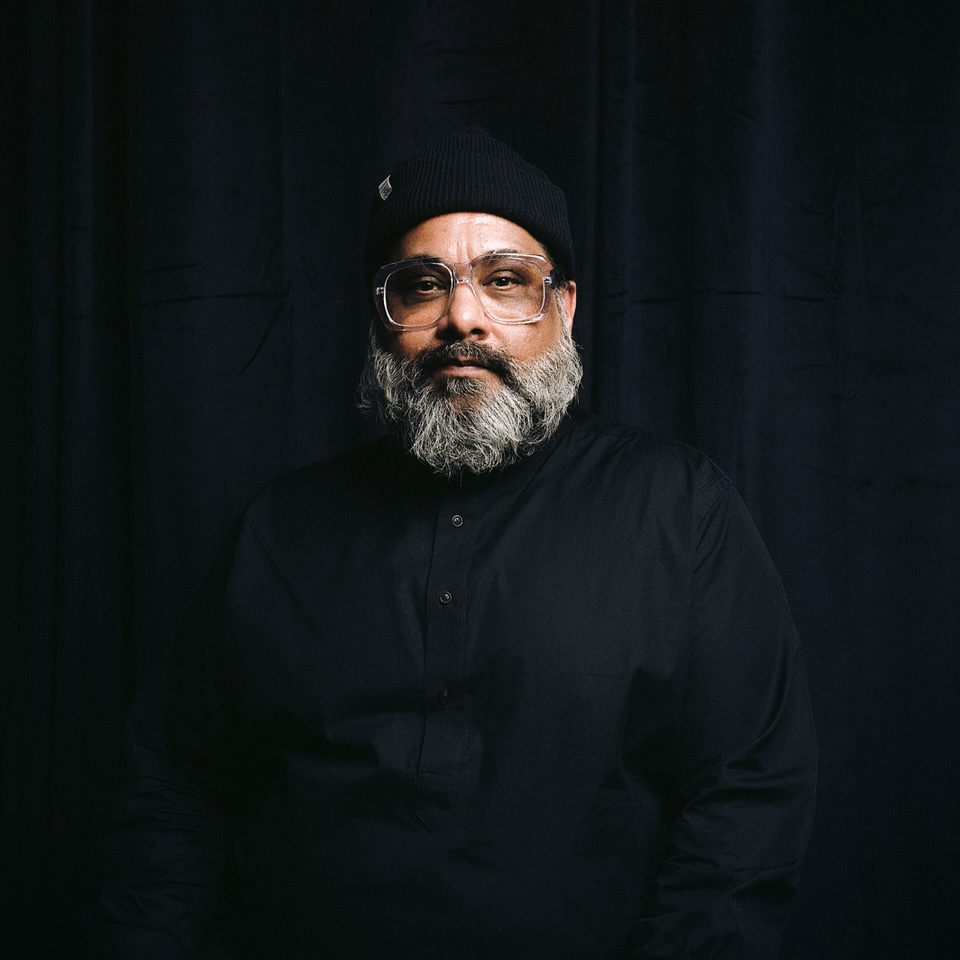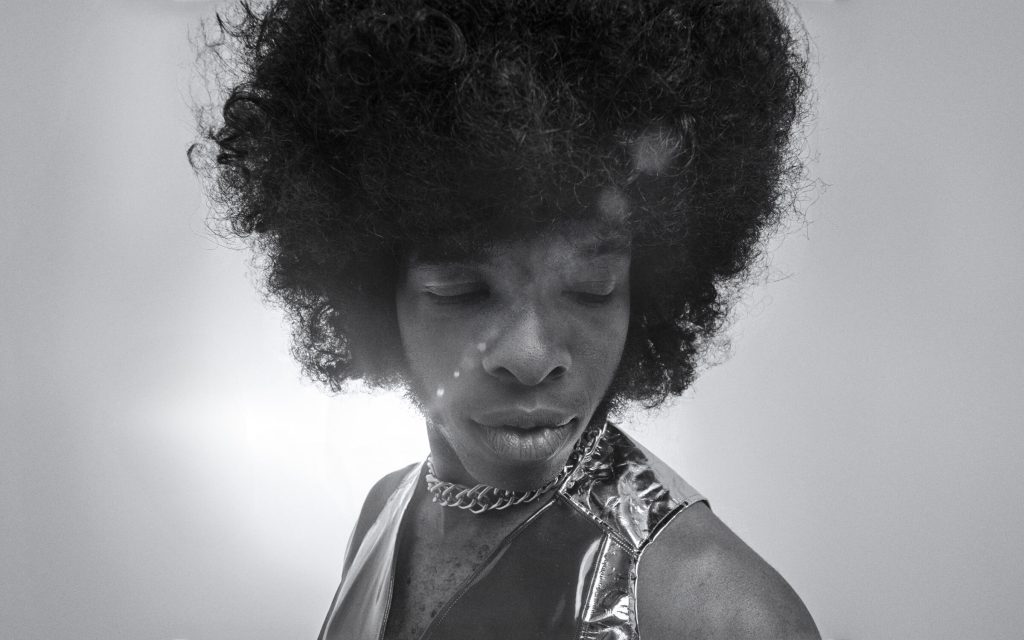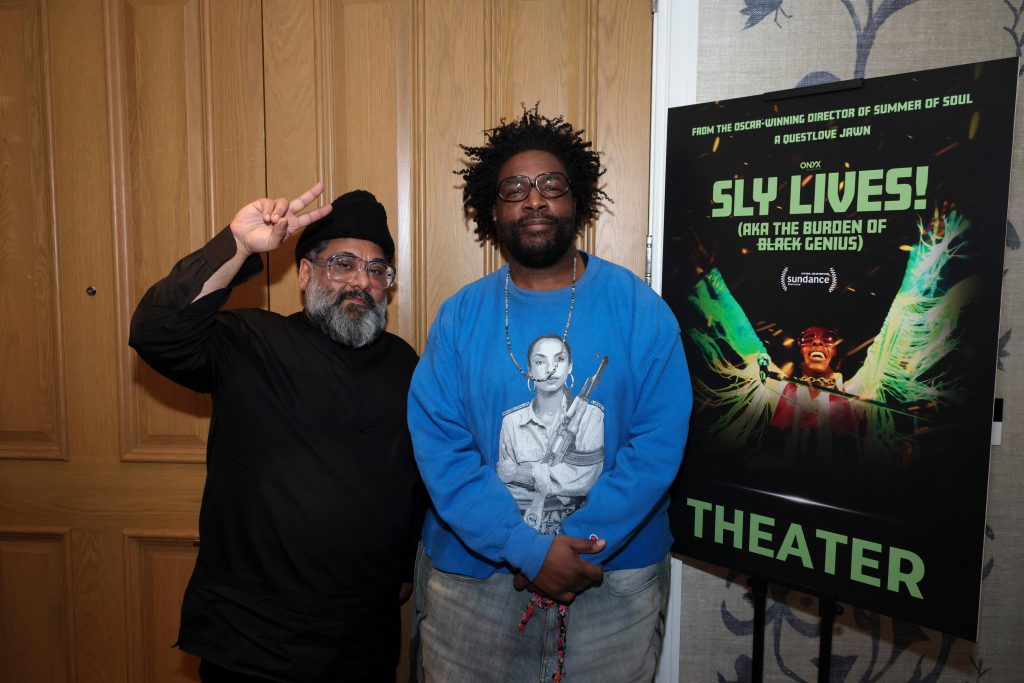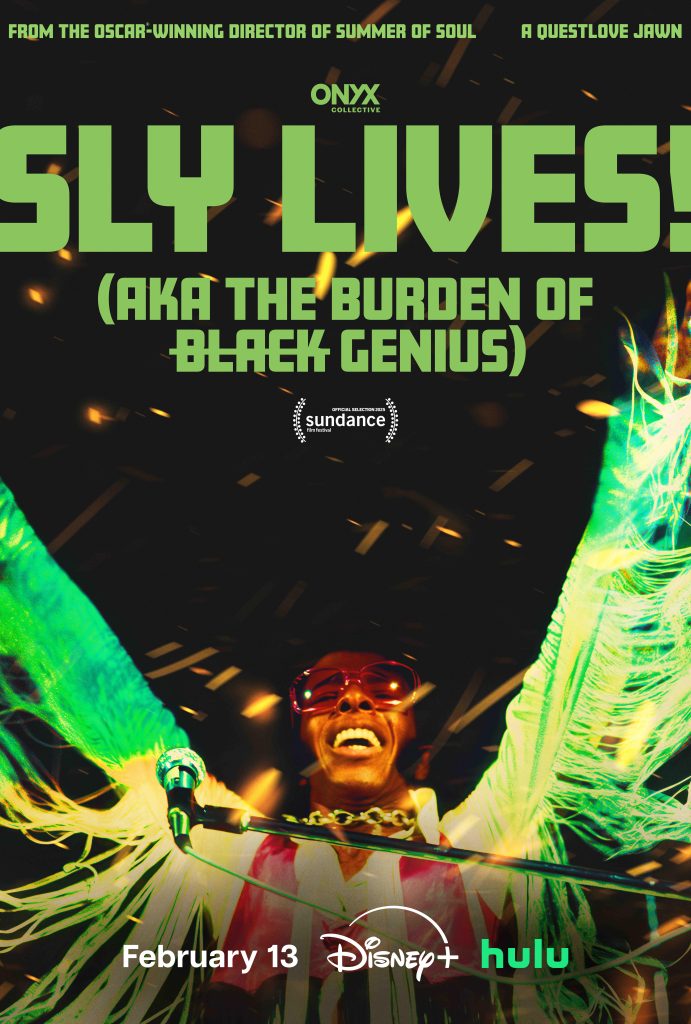Onyx Collective’s original documentary SLY LIVES! (aka The Burden of Black Genius) — which premiered Thursday on Hulu — examines the life and legacy of Sly Stone, the visionary musician who led the diverse funk band Sly & The Family Stone to massive crossover success in the 1960s before a precipitous fall from grace in the early ’70s.
Through penetrating interviews and archival footage, director Ahmir “Questlove” Thompson and producer Joseph Patel put the story in context, pinpointing Sly’s vulnerabilities as well as the social pressures and unseen burdens that come with success. The film is much like Sly’s radically diverse sensibility: a layered and energetic fusion of sight and sound, history and vision, dream and truth.
Patel spoke to us about how the film deconstructs Sly’s music to tell his story for a broad audience, his chemistry with Questlove, and the extraordinary balance necessary to counter the pressure of living a public life.
How did Summer of Soul influence the creation of SLY LIVES! (aka The Burden of Black Genius)?
When we started working on Summer of Soul, we knew early on that we wanted to make a film that was done in a unique style, one that could only come from us as kids of the hip-hop generation. Something you can tell our fingerprints were on, not the typical music documentary. Ahmir Thompson [Questlove] said he wanted the film to feel like a Public Enemy album at times, and what that meant was something layered, sample-heavy, where the dialogue and the music were on top of each other.
If you watch the film, you see how people’s stories are often tucked into songs, and how the archival footage can be “sample-like” in the flow of a song. Our editor, Josh Pearson, understood what we meant because he’s a musician as well as an editor. SLY LIVES! had the same feel — there’s not a lot of distance between the music and the voices, and there’s a rhythm and musical pacing to the whole film that makes it flow.
The other thing we felt was important in Summer of Soul is understanding who our audience was. We wanted the film to find a sweet spot between those who knew nothing about the story and those who were real die-hards. We took a similar approach with SLY LIVES! A lot of people might know the music but not know the story; a lot of folks might not know either; there’s also a handful of super obsessive fans sprinkled around the world. We wanted to tell a story that found the sweet spot for all those folks.

How did you manage to go wide with a very specific question about one man who’s no longer in the public eye?
I think what makes a good documentary is when you can tell a specific story that also tells a broader story about a bigger idea. That was our focus from Day One. Questlove knew he wanted to tell Sly’s story and do so with a lot of empathy. But we also saw that story as an avatar for this other broader narrative, about the unseen pressures, guilt and anxiety that comes with success for a lot of Black artists.

How did you choose who to interview in the doc? Was it a creative decision to not include Sly Stone?
It would have been great to interview Sly Stone but, for health reasons, we weren’t able to. Knowing we couldn’t interview him, we went to work searching for archival interviews and found some really illuminating ones.
For the idea of the “burden of Black genius,” in an ideal world, we could interview Sly and ask him to be reflective of those moments where maybe anxiety and guilt took over. We couldn’t do that. But we could ask D’Angelo about that because he’s been through something similar. We could ask Andre 3000 about that because he’s also been through something similar (and chose a different, more protective path). We could ask the filmmaker dream hampton or Q-Tip or Chaka Khan about the pressures Sly faced, and really that they also have faced. So that was our approach in tackling this story and these themes without Sly.

You met Questlove almost 30 years ago. Can you tell us a little bit about your working partnership?
Our working relationship is very collaborative. He trusts me with story and look and feel. Because we’re of similar age, when he speaks in pop culture references, I understand what might sound abstract to others; and I’m then able to translate that into actionable language for the rest of the team. He brings the larger idea but trusts me to help put the story together to reach it. That’s a huge responsibility but one that creates a dynamic where I feel I can thrive.
It’s also pretty great to work with one of your true musical heroes. Ahmir might know more about music than anyone I’ve ever met, and that’s saying something. But what separates Ahmir from everyone else is that while he may know a lot about music, he wants to share that knowledge with the world. He wants you to understand why he likes something, what makes a specific song good and bring you into the fold. That’s very rare.
Why is Onyx Collective the right brand for SLY LIVES! (aka The Burden of Black Genius)?
From my perspective, it’s quite remarkable that we, as filmmakers, get to work with an entire team that understands where we’re coming from, the stories we want to tell and how we want to tell them. We feel seen and heard by the Onyx Collective team — and that is in all facets of the filmmaking process: from production, in post, through the release. Just looking around the industry, that feels incredibly hard to come by. Most importantly, there’s an alignment between the stories Ahmir and I want to tell and the stories Onyx Collective wants to tell. When you find something special like that, you want to hold on to it for as long as you can.
